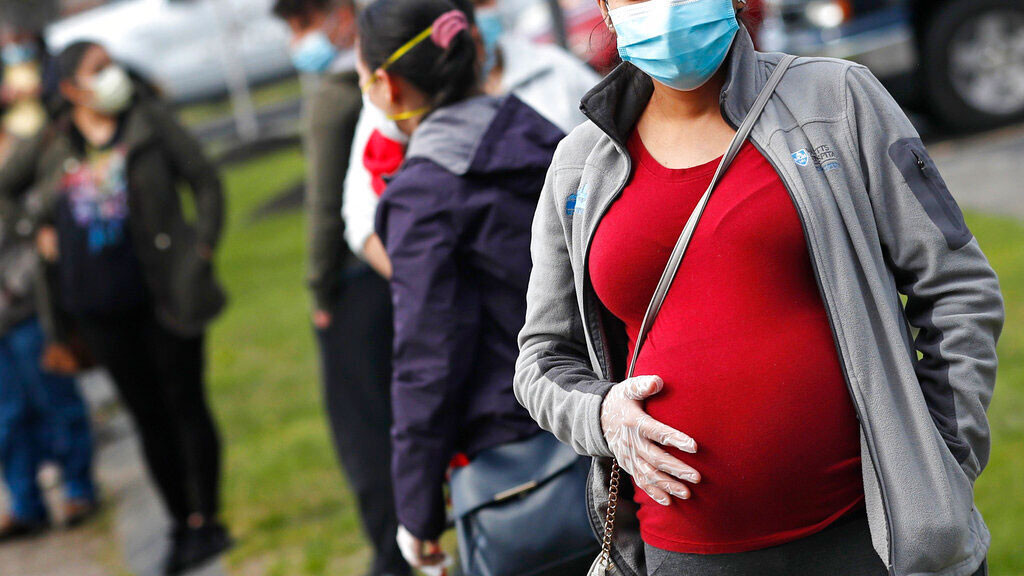COVID-19 vaccines and fertility

In this May 7, 2020 file photo, a pregnant woman waits in a food pantry line at St. Mary's Church in Waltham, Mass., for people in need of groceries due to the COVID-19 pandemic. Two obstetricians' groups--The American College of Obstetricians and Gynecologists and the Society for Maternal-Fetal Medicine, are now recommending COVID-19 shots for all pregnant women, citing concerns over rising cases and low vaccination rates. AP Photo/Charles Krupa, File
Because pregnant women are at increased risk for contracting severe COVID, vaccinations are especially important for this group. Not to mention, the risk to pregnancy outcomes and complications due to COVID are also disproportionately high. Despite overwhelming medical evidence pointing to the safety and necessity of vaccines for pregnant women, fears over fertility and fetal issues have prevented many women from taking them. Some men have even grown wary it could alter their sperm production. Though the vaccine presents no risk of infertility, research has now confirmed that the shots can affect menstrual cycles, with one recent linking vaccination to a slight increase in menstrual-cycle length.
The 21st was joined by two researchers who have documented such cases, as well as an OB/GYN, to clarify the findings and dispel misinformation about the research.
GUESTS:
Kate Clancy, PhD
Human reproductive ecologist, Associate Professor of Anthropology, University of Illinois
Alessandra Hirsch, MD
Resident Physician, Department of Obstetrics & Gynecology, University of Chicago Medical Center
Katherine Lee, PhD
Biological anthropologist, Postdoctoral scholar in the division of public health sciences, Washington University School of Medicine
Thousands of U.S. women think they may have had other side-effects that drugmakers and doctors never warned them about: unexpected changes in their menstrual cycles. A causal link hasn't yet been established between the vaccines and the reported changes. https://t.co/J00MNLzw5O
— NPR (@NPR) August 9, 2021
Prepared for web by Owen Henderson
Help shape our coverage on The 21st by joining our texting group and answering weekly questions. To join, text “TALK” to 217-803-0730 or sign up with your phone number below:

